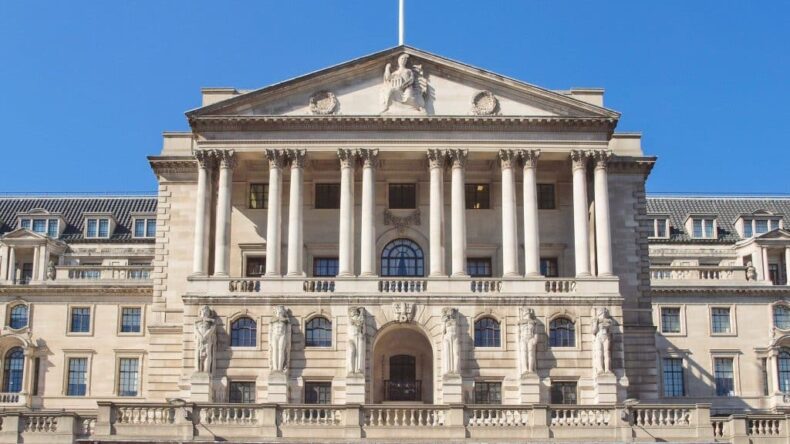The news article gives a brief description of the bank rates of England being raised.
On the 22nd of September 2022, the Reserve bank of London increased interest rates yet another time to fight inflationary pressures and announced that perhaps the economy already has entered an economic downturn.

The Board of Economy’s announcement comes after a big week that monetary authorities, during which its counterparts in the US and other European nations strengthened their respective macroeconomic variables as part of international attempts to reign in inflationary pressure.
The judgment by the British monetary authority was brought up the previous week when monarch Queen Elizabeth II expired.
The Board of the economy had increased its basic price by 0.5 points to 2.25 points, reflecting an earlier Previous hike, which was the fastest growing industry until 1995. While doing so, it matched the overwhelming sales growth.
The Board of Economy might have joined the Central Bank of Europe and the United States Treasury Department and unexpectedly raised interest rates by 0.75 points, which would have marked the institution’s biggest increase in a half-century.

Inflation expectations have surged to their maximum extent in decades as a result of increasing energy and resource costs post-Russia’s attack on Kyiv.
In return, monetary authorities increased their interest rates, thus increasing concerns about an approaching economic downturn by hiking mortgage repayments among both individuals and businesses and worsening the expenditure problem in the United Kingdom.
For the very first period after 2015, the Bern Central Bank’s policy rate was hiked on the 22nd of September 2022 by 0.75 points, which means customers never need to pay any more to retain their deposits in the bank.
Their rate was hiked by the Oslo central bank by 0.5 points on the 22nd of September 2022, making it the highest rate in more than ten years.
The Bank of Tokyo defied expectations and maintained its super duper monetary and fiscal policy, which caused the currency to drop to a new 24-year low against the USD.
Late last month, after new Prime Minister Liz Truss, recommended reviewing its full autonomy, the Board of Economy came under fire for supposedly being much too slow to address the soaring rising prices.
Even though it decreased to 9.9 %, the United Kingdom’s inflation is still approaching a decade’s average.
In such an effort to minimize the financial impact of soaring rates, Truss who is the prime minister of the United Kingdom unveiled seven different strategies on the 21st of September 2022 which will subsidize approximately half of the operational costs for organizations, clinics, institutions, and enterprises commencing in October 2022.
A two-year electricity prices moratorium for pretty difficult families was already on the leader’s agenda.
The extra – money for tax concessions aimed at encouraging the national economy will be unveiled by Economy Minister Kwasi Kwarteng on 22nd September 2022. They will indeed discuss the significant cost of the power generation aid.
However, the package has the potential of subsequently raising inflation due to growing consumption, according to the federal bank Citibank.
German currency institutions have counted on multiple jumps, the greatest before 1989, excluding a short, incorrect decision to bolster currency in 1992. Economists surveyed by Bloomberg earlier this week had predicted a repetition of August’s mid-increase in interest rates.
The Board of Economy’s action comes as monetary authorities around the country and internationally with both the consequences of something like the COVID unskilled labor and the consequences of Russia’s attack on Ukraine on petroleum prices. On the 21st of September 2022, the United States Federal Reserve decided to increase its benchmark interest rate by three-quarters of a couple of percents.
The Board of Economy’s 838 billion British ownership of treasury securities will be decreased by 1.2 trillion pounds over the next year by allowing bonds to mature and through active sales, which will begin next month, according to a unanimous vote by the MPC.
After reaching a 40-year high of 10.1% in August, consumer price inflation decreased for the first time in nearly a year, dropping to 9.9% in July.
The government’s fiscal plans, which might total well over 150 billion British pounds in stimulus, will be talked about in greater detail by incoming energy minister Kwasi Kwarteng on Friday.
Read More: Nasa’s giant Moon rocket has completed a fueling test












